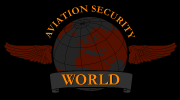Could tourism be hit again?
Several airline industry consultants said airport authorities across the country may react to the arrests by increasing both passenger background checks and luggage searches at airport screening checkpoints. It's also possible that the arrests might spark the United States to expedite plans that would force Canadian travellers to the U.S. to have passports, instead of other forms of ID.
"I think you could see this affect the airlines if there's fire, not smoke," said McGill University professor Karl Moore, an expert in the airline industry. "But so far, of course, all we have are a number of people who have been charged."
Of course, passengers who have to clear customs at Canada already complain of long security line-ups — enough so that U.S. authorities have contemplated cutting out the searches for scissors and small knives and perhaps even installing television monitors for travelers while they stand in line.
Airline industry authorities have also explored other security technologies that could be introduced at airports, such as machines that would detect weapons or explosives hidden under clothing.
It's also possible that, as concerns mount, airlines might further explore plans to add more air marshals to flights or even equip planes with a system to defend against surface-to-air missiles.
The latter would be an expensive manoeuvre, however, especially as Air Canada and WestJet Airlines Ltd. continue to battle spiking jet fuel prices. The cost to retrofit planes with anti-missle technology could be as much as $1 million a plane, experts say. That would cost Air Canada alone more than $300 million, given its fleet of 329 planes.
"Many of Israel's planes are already equipped with this technology," said Clive Miskin, an aviation security consultant with Dallas-based International Security Defense Systems. "It costs less than a plane does."
But airline consultants say it's unlikely there will be more visible security, such as machine-gun armed officers with dogs roaming airports.
"That just doesn't seem Canadian, guns out in the open," Moore said.
Air Canada spokesperson Isabelle Arthur declined to comment on the carrier's security efforts other than to say the company acts in accordance with the government's security regulations.
Still, several airline industry experts said it's doubtful that travellers, especially those coming to Canada from overseas, would abandon their trips.
"Many Europeans have been living with terrorism for years," said Robert Kokonis, president of Toronto airline consultancy AirTrav Ltd. "They've had the attacks in London and Spain and elsewhere.
"So far, this (in Toronto) is merely a series of arrests."
Even so, Kokonis said that if subsequent events show homegrown terrorism to be widespread, "then you could have a problem."
In downtown Toronto yesterday, a few dozen tourists lingered in the sunshine by the CN Tower, taking photos and eating cotton candy.
Ludmilla Queiroz, 29, of Mississauga, who visited the Toronto landmark with her mother and sister, said she was surprised to hear about the arrests. "Canada's usually very peaceful."
She added that she was not worried about going up the tower. "I really believe in Canadian security."
A security guard at the Rogers Centre, who declined to give his name, said that no additional security measures had been put in place in response to the RCMP's investigation and the arrests.
"We've been going pretty much the same since 9/11," he said, referring to the Sept. 11 attacks in the United States.
Toronto's tourism industry suffered heavily in the months following the attacks in New York and Washington as the usual stream of visitors from the U.S. slowed to a trickle.
Drew Ogilvie, director of sales and marketing for Toronto Hippo Tours, remembers it as a very difficult time for the then-fledging company.
The SARS scare a few years back also hurt the tour operator, but business has been better since, with about 30,000 people taking a land-and-water excursion on its distinctive vehicles last spring and summer.
Ogilvie estimates that business is up about 30 per cent so far this year. He doesn't expect the arrests to have much of an impact.
"It's not something that is in the top three things that are going to affect tourism," Ogilvie said, adding that the high Canadian dollar, gasoline prices, and perceived border delays probably have more of a detrimental effect.
"I guess you could add it to the list."
Today, tourists from the U.S. account for about 80 per cent of the company's business, though May and June are typically dominated by British visitors.
"Of course the Brits are not really prone to stop their travelling because of security risks. I think they're renowned for travelling under any conditions," Ogilvie said.
Toronto Star









0 Comments:
Post a Comment
<< Home